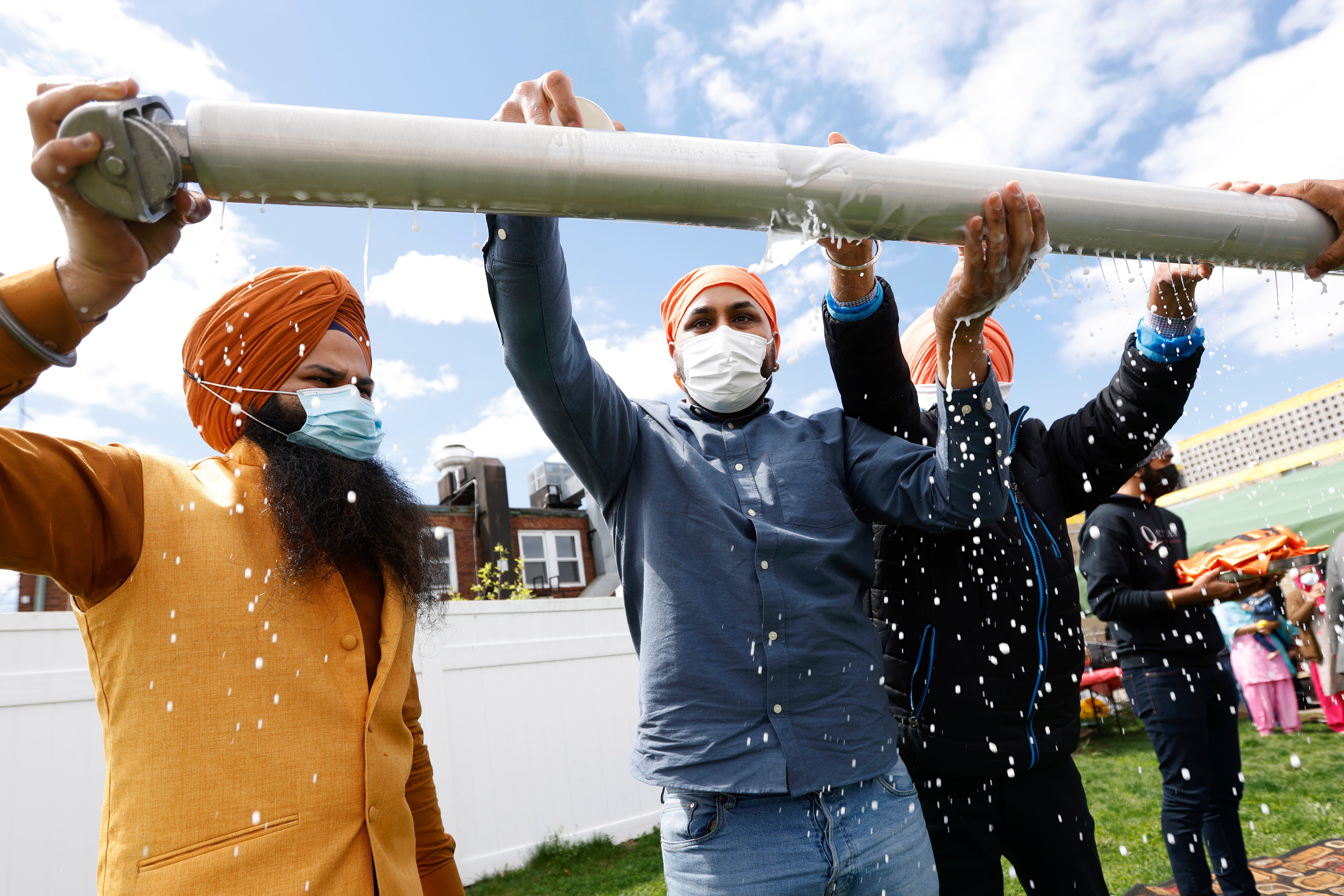Sikhs mark toned-down holiday amid continuing virus concerns
Sikhs across the U.S. are holding toned-down Vaisakhi celebrations this week, joining people of other faiths in observing major holidays cautiously this spring as COVID-19 keeps an uneven hold on the country

Sikhs across the United States are holding toned-down Vaisakhi celebrations this week, joining people of other faiths in observing major holidays cautiously this spring as COVID-19 keeps an uneven hold on the country.
Vaisakhi, which falls April 13 or 14 depending on which of two dueling calendars one follows, marks the day in 1699 when Sikhism took its current form. Communities typically celebrate by gathering at gurdwaras, or places of worship, for prayer and the reading of hymns, and there are often processions, parades, other activities and food.
While the ongoing pandemic has many people celebrating remotely this year just as in 2020, some, especially in the United States, are joining in masked, socially distant Vaisakhi gatherings.
“Sikh community members, especially those who faced hardships and loss during the pandemic, view Vaisakhi as a fresh start and a sign of hope that things will be better once again,” said Sahej Preet Singh, community development manager at the Sikh Coalition, a national organization based in New York. “The Sikh worldview embraces resilience and Chardi Kala (relentless optimism).”
For the second year in a row, outdoor festivities at the Midwest Sikh Gurdwara and the traditional parade in the city of Shawnee, a suburb of Kansas City, Missouri, have been canceled. But in an improvement over 2020, some events will be held at the temple and via social media.
Komalpreet Kaul, a 16-year-old high school student in nearby Olathe, Kansas, said the parade is “the one big event of the year where everyone gets together, and we welcome other members of the community to participate. ... This is like our Christmas, and it’s something we look forward to so much."
"But we are going to find alternatives this year to celebrate,” she added.
Kaul has been lobbying officials in several area cities trying to get them to declare April Sikh Awareness and Appreciation Month, so far winning one such proclamation from Lenexa, Kansas. Kaul, who was raised in New York City before moving with her family to Kansas in 2017, said she wants to make others more familiar with her faith.
“Increasing awareness can combat the negativity and hate,” she said.
In California's San Joaquin Valley, the Stockton Gurdwara Sahib organized a Tuesday evening service of prayers, readings from the Guru Granth Sahib scripture and music, held in-person while following health guidelines, said Tejpaul Singh Bainwal, a temple member and student of early Sikh American history. A more involved celebration including a vaccination clinic will be held this weekend, also under masking and social distancing rules.
In a normal year there would be a parade that attracts thousands, but it has been called off this year. Bainwal expects attendance at the events to be much lower as people focus instead on selfless service.
“People are practicing their faith in a different way since COVID," he said.
At Guru Nanak Darbar of Long Island, in Hicksville, New York, normally there's a giant tent set up in the parking lot to accommodate crowds of up to 2,000 people at a time coming for festivities and treats. This year the celebrations were marked by temperature monitors, social distancing and bagged meals to take home. Temple members set a more restrictive attendance level than required, allowing about 150 into prayer services that can normally accommodate 600.
“In a normal year we have a lot of stalls, a lot of food," said Harcharan Singh Gulati, the general secretary. "But this year we don’t want to take any risk. We want people to take it home.”
After all Vaisakhi celebrations were shut down in 2020, this year people were allowed inside the gurdwara in small groups for prayer, readings and religious songs.
“It’s not like two or three years ago," Gulati said, "but it is better than what we had last year.”
___
Associated Press religion coverage receives support from the Lilly Endowment through The Conversation U.S. The AP is solely responsible for this content.
Bookmark popover
Removed from bookmarks